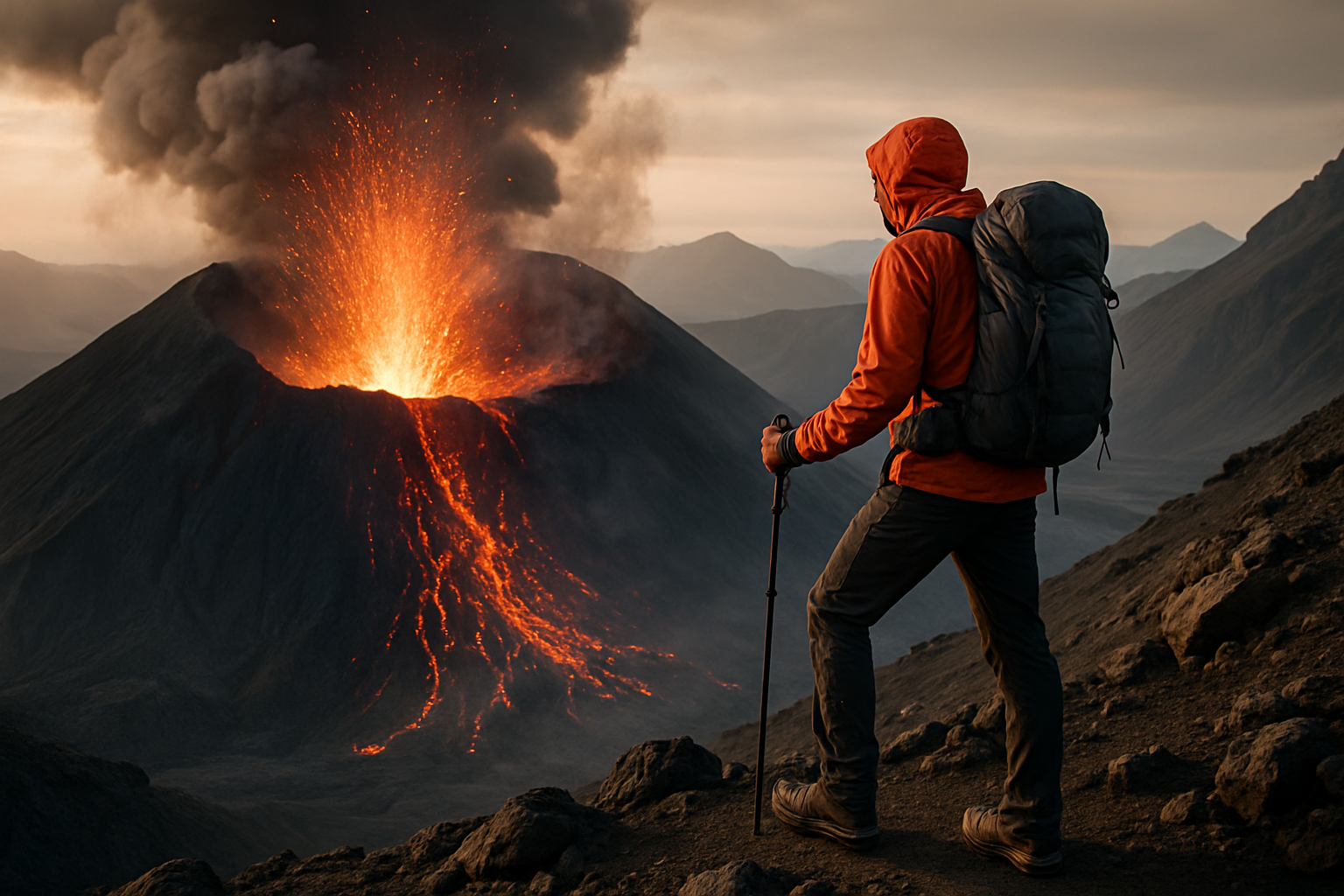Volcano Tourism: Exploring Earth's Fiery Giants
Embarking on a journey to witness nature's most awe-inspiring spectacles, volcano tourism has emerged as an exhilarating niche in the travel industry. This thrilling pursuit allows adventurers to experience the raw power of our planet's geological forces up close. From dormant giants to active peaks, volcanic destinations offer a unique blend of natural wonder, scientific intrigue, and heart-pounding excitement. As we delve into the world of volcano tourism, we'll uncover the allure, challenges, and responsible practices that shape this captivating travel trend.

Geological Wonders and Their Appeal
The allure of volcanoes lies in their ability to showcase Earth’s dynamic nature. These geological marvels provide a window into the planet’s inner workings, offering visitors a chance to witness firsthand the forces that shape our world. From the dramatic landscapes of Yellowstone National Park to the towering peaks of Mount Etna in Sicily, volcanic sites present a diverse array of natural wonders. The opportunity to observe bubbling mud pools, steaming fumaroles, and even rare lava lakes draws travelers seeking both education and exhilaration.
Safety Considerations and Responsible Tourism
While the prospect of exploring active volcanoes may seem daunting, many volcanic sites have implemented robust safety measures to protect visitors. Guided tours, monitored exclusion zones, and early warning systems are common practices in volcanic regions. However, it’s crucial for travelers to understand and respect the inherent risks associated with these dynamic environments. Responsible volcano tourism involves adhering to local regulations, following expert guidance, and being prepared for rapidly changing conditions.
Cultural Significance and Local Communities
Volcanoes often hold deep cultural and spiritual significance for local communities. Many indigenous cultures view these natural landmarks as sacred sites, intertwining their beliefs and traditions with the volcanic landscape. Responsible volcano tourism encourages visitors to engage with and learn from these communities, fostering cultural exchange and supporting local economies. From participating in traditional ceremonies to staying in community-run accommodations, travelers can gain a deeper appreciation for the human connection to these powerful natural phenomena.
Scientific Research and Citizen Science Opportunities
Volcanic destinations offer unique opportunities for travelers to engage with scientific research. Many volcanic sites host research stations and observatories, allowing visitors to learn about ongoing studies and even participate in citizen science initiatives. These experiences not only enhance the educational value of volcano tourism but also contribute to our understanding of Earth’s geological processes. From collecting ash samples to monitoring seismic activity, travelers can play a role in advancing volcanic research while satisfying their curiosity about these fascinating formations.
Volcano Tourism: Essential Tips and Fascinating Facts
-
Always book tours with certified guides who prioritize safety and environmental conservation
-
Pack appropriate gear, including sturdy hiking boots, protective eyewear, and respiratory masks
-
Stay informed about current volcanic activity and follow all local warnings and advisories
-
Respect cultural sites and local customs when visiting volcanic areas
-
Consider timing your visit during periods of increased activity for a chance to witness rare phenomena
-
The world’s largest active volcano, Mauna Loa in Hawaii, covers an area of 2,000 square miles
-
Ol Doinyo Lengai in Tanzania is the only active volcano known to produce natrocarbonatite lava
-
The term volcano tourism was first coined in the 1980s but has gained significant popularity in the last decade
-
Some volcanoes, like Mount Etna, produce fertile soil that supports thriving agricultural communities
-
Volcanic ash can have surprising benefits, including skin treatments and natural fertilizers
The Future of Volcano Tourism
As interest in volcano tourism continues to grow, the industry faces both opportunities and challenges. Balancing increased visitor numbers with environmental conservation and safety concerns will be crucial for sustainable development. Emerging technologies, such as virtual reality and drone monitoring, may offer new ways to experience volcanic wonders while minimizing impact. Additionally, climate change and its effects on volcanic activity will likely shape the future of this niche travel sector. As we look ahead, volcano tourism stands poised to evolve, offering travelers ever more immersive and responsible ways to explore Earth’s fiery giants.





